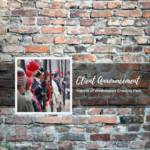Our country’s reckoning with systemic racism has brought new visibility to a critical examination that’s been developing for some time—one that is deeply relevant to all of us in the world of fundraising. It concerns the ways in which American philanthropy and the country’s nonprofit sector can at times perpetuate the inequities they were created to address.
A key idea here is that the intertwined nonprofit and philanthropic sectors were primarily created by white people, many of whom amassed their wealth through extractive industries or the exploitation of people of color and working-class people. The result in the case of foundations can amount to the legal hoarding of that wealth. In the case of nonprofits, it can mean holding the power to determine how best to “help” under-resourced communities without giving members of those communities any ownership of the decisions shaping their destiny or any chance to take initiative on their own.
As nonprofits and foundations alike take a hard look at how to correct centuries of structural inequities, many are finding they need to move beyond statements of solidarity and towards meaningful change. The conversation about this transformation has already begun, thanks to nonprofit workers and authors like Vu Le (Nonprofit AF) and Edgar Villanueva (Decolonizing Wealth), and has been enriched by organizations such as Justice Funders and Community-Centric Fundraising.
As a middle-class white woman working in fundraising (one of many), I believe I have a moral obligation to educate myself about what led us to this juncture. (As a starting point, I highly recommend this episode of the Ethical Rainmaker podcast, where Christina Shimizu concisely outlines what many see as the racist roots of nonprofits and philanthropy). In the spirit of engaging more deeply with this growing network of thinking and activism, I recently attended the virtual conference Relationships are Everything: Building a More Kind, Healthy, and Equitable World organized by Julie Berthoud-Jury at the Showcase of Fundraising Innovation and Inspiration (SOFII).
The conference, which featured speakers from the U.S., Canada, and Europe, featured sessions with titles ranging from “Decolonizing Nonprofit Strategic Planning” to “How to Attract, Hire, and Retain Diverse Fundraising Professionals,” which were largely facilitated by BIPOC fundraisers and nonprofit leaders. Each session challenged participants to question their assumptions about how “things should work” and reinforced the importance of honest, transparent, and mutually-beneficial relationships.
Some of my key takeaways
- Deconstructing problematic ideologies in nonprofit practices requires the examination of long-held assumptions about what types of knowledge and experience have worth and validity. For example, data has long reigned supreme when it comes to evaluating the effectiveness of a program or organization. But we need to ask why this is so and what are the consequences? When we prioritize data above all other measures, do we miss seeing impacts that would be revealed through other lenses? In doing so, do we essentially put-on blinders that render valuable dimensions of an organization’s work invisible? As a solution, session participants discussed ways of gathering anecdotal information and integrating those stories into evaluations of program effectiveness as a complement to quantitative measures.
- Nonprofits and foundations need to deeply examine their organizational culture and practices, acknowledging that the “way it’s always been done” could very well center white experience and create an environment that is not inclusive or welcoming of diversity. This in-group favoritism—even if unintended–can have a significant impact on efforts to hire and retain diverse staff. As founder of the African American Development Officers Network Birgit Burton noted, “Don’t mistake the mirror for the merit.”
- The prevailing narrative of “donors as heroes” can bestow unearned power on wealthy individuals to influence how nonprofits support their affected communities. It signals that large financial contributions have more worth, and that contributions of time are not valuable. In fact, the collective power of grassroots contributions has been amply demonstrated in recent presidential campaigns, and is being practiced in a number of social justice organizations aiming to align their fundraising with their values.
- The process of building a more just and equitable sector is not only uncomfortable, but it must be. In the words of presenter and AFP Master Trainer Cherian Koshy, it’s a “messy thicket.” The important questions are those we’re afraid to answer.
Ultimately, a shift toward a fundamentally new direction will require acknowledgment of how white power is foundational to the structure and operations of nonprofit organizations and foundations. It will also require a deep humility and willingness to listen. Presenter Nneka Allen, CFRE, sums up the first steps of a call to action: “Listen to the truth of others. Accept it as it is shared.” I would add: Do something about it, using justice as your guide.




